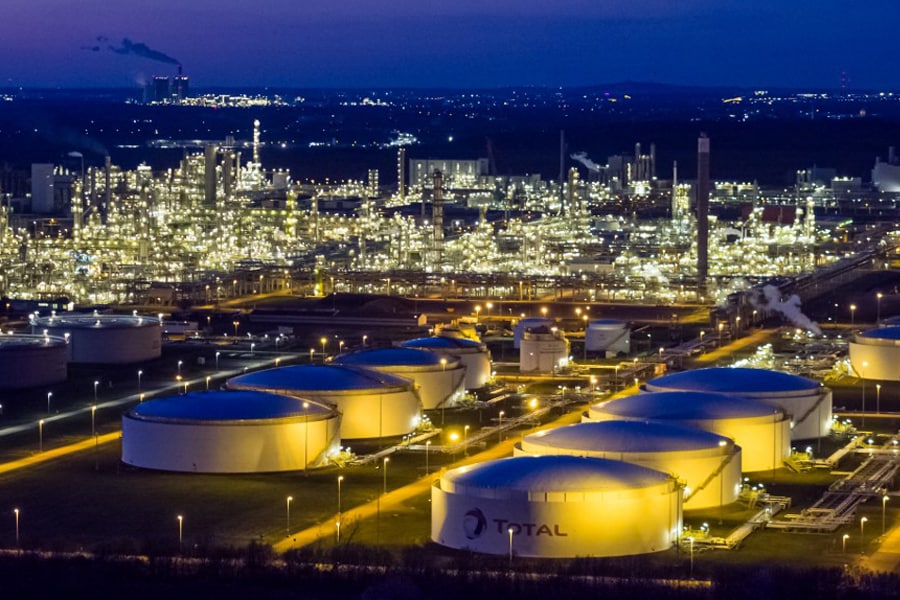
From BP to Shell: Energy majors exaggerate green performance while drilling deeper into oil, gas
Industry watchdog InfluenceMap analysed more than 3,400 public communications from BP, Chevron, ExxonMobil, Shell and TotalEnergies in 2021, and found that while 60 percent of all messages contained at least one "green" claim, only 12 percent of the five's new spendings were earmarked towards low-carbon activities in 2022
 TotalEnergies Leuna oil refinery near Spergau, eastern Germany, on April 19, 2022. Image: Stringer / AFP
TotalEnergies Leuna oil refinery near Spergau, eastern Germany, on April 19, 2022. Image: Stringer / AFP
Paris, France: Energy majors are exaggerating their green credentials in public messaging while continuing to allocate the majority of new investment to oil and gas projects, according to an industry analysis released Thursday.
Campaigners say this "significant misalignment" between communication strategies and business plans could allow five of the biggest privately-owned energy firms to continue to delay the decarbonisation needed to avoid the worst impacts of climate change.
Industry watchdog InfluenceMap analysed the content of more than 3,400 public communications from BP, Chevron, ExxonMobil, Shell and TotalEnergies in 2021, from press releases, speeches and company and CEO social media accounts.
They found that 60 percent of all messages contained at least one "green" claim — such as emissions reduction targets, transitioning the energy mix, or promoting fossil gas as part of a clean energy solution.
These public communications were found to contrast with the five's planned capital expenditure for 2022, with just 12 percent of new investments earmarked for low-carbon activities.







